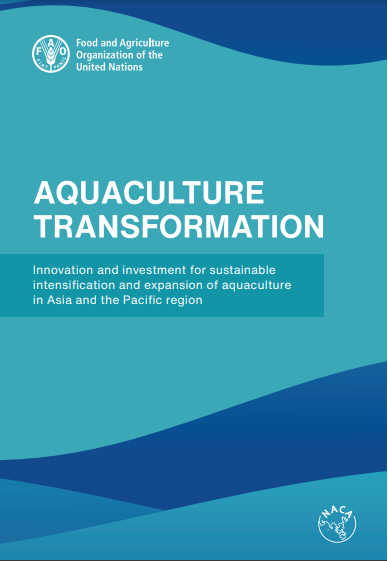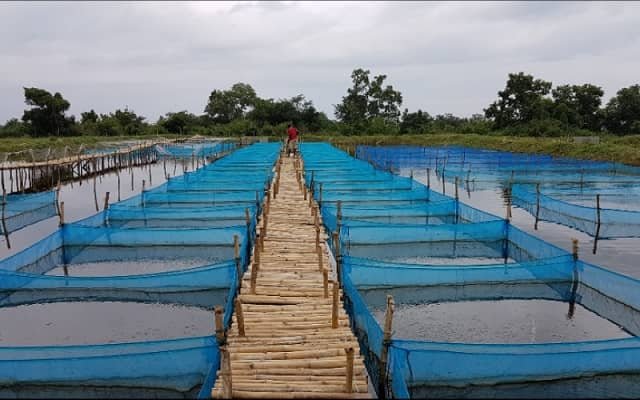
The Asia-Pacific region, often referred to as the “Blue Continent” of the world, leads in aquaculture production, contributing a staggering 92 percent to the global supply of cultivated fish, crustaceans, mollusks, seaweed, and other aquatic delights.
This region plays a vital role in addressing various Sustainable Development Goals (SDGs), including ending hunger, improving health and nutrition, mitigating climate change, reducing poverty, promoting gender equality, and creating employment opportunities.
The promise of sustainable aquaculture
When practiced sustainably, aquaculture promises to be an environmentally responsible and low-carbon food production method. It minimizes overexploitation of wild fisheries, preserves marine ecosystems, and provides economic opportunities to communities.
However, like any form of food production, it is not without environmental and social challenges. The intensification of aquaculture must be approached with care to avoid harming our planet and its people.
In light of these challenges, the FAO has developed a “Blue Transformation Roadmap.” This visionary document outlines a comprehensive strategy for the sustainable development of aquatic food systems until 2030. It encompasses three core components: aquaculture, capture fisheries, and value chain transformation.
Asia-Pacific “White Paper”
The “Asia-Pacific White Paper” is an integral part of the FAO’s Blue Transformation Roadmap. The document provides specific guidance for each region on how to translate the roadmap’s objectives into viable strategies.
Creating the document involved a series of national and regional consultations. It draws from high-level reviews such as the 2021 COFI Statement on Sustainable Fisheries and Aquaculture and the Shanghai Statement of the World Conference on Aquaculture Millennium+20.
The White Paper presents a vision for the aquaculture industry in the Asia-Pacific region for 2030.
This vision envisions that aquaculture “will become more efficient, inclusive, resilient, and sustainable through innovation, investment, and partnerships. It will leverage the diverse cultural foundations of aquaculture in the region, strengthening its contribution to global food security, improved nutrition, secure livelihoods, economic development, and environmental recovery.”
Stay Always Informed
Join our communities to instantly receive the most important news, reports, and analysis from the aquaculture industry.
Five strategic objectives
To realize this vision, the White Paper outlines five strategic objectives:
- Sustain the growth of aquaculture production in the region with at least 3 percent average annual growth and over 103 million tons of regional production by 2030.
- Improve environmental and climate resilience.
- Foster efficient, inclusive, and resilient aquaculture value chains.
- Enhance governance to support aquaculture transformation.
- Promote increased partnership and cooperation among governments, the private sector, and civil society organizations (CSOs) to accelerate aquaculture transformation.
Each objective has prioritized Action Areas that are considered key to sustainable intensification and expansion of aquaculture in the Asia-Pacific region.
Pathways to transformation
The “White Paper” concludes with a roadmap for sustaining implementation and monitoring by key actors along four pathways:
- The development of national aquaculture transformation – innovation and investment plans.
- The need for increased regional and international cooperation.
- The need for more innovation and investment.
- Monitoring progress and shared learning.
A call for collaboration
The White Paper underscores the complementary roles of the public and private sectors and civil society in aquaculture transformation. It envisions FAO and NACA as key players in mobilizing partnerships and promoting regional cooperation.
Reference (open access)
FAO & NACA. 2023. Aquaculture transformation – Innovation and investment for sustainable intensification and expansion of aquaculture in Asia and the Pacific region. Bangkok, FAO. https://doi.org/10.4060/cc4962en
Editor at the digital magazine AquaHoy. He holds a degree in Aquaculture Biology from the National University of Santa (UNS) and a Master’s degree in Science and Innovation Management from the Polytechnic University of Valencia, with postgraduate diplomas in Business Innovation and Innovation Management. He possesses extensive experience in the aquaculture and fisheries sector, having led the Fisheries Innovation Unit of the National Program for Innovation in Fisheries and Aquaculture (PNIPA). He has served as a senior consultant in technology watch, an innovation project formulator and advisor, and a lecturer at UNS. He is a member of the Peruvian College of Biologists and was recognized by the World Aquaculture Society (WAS) in 2016 for his contribution to aquaculture.




